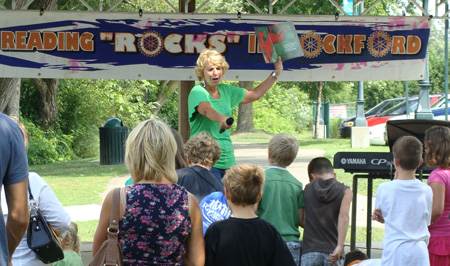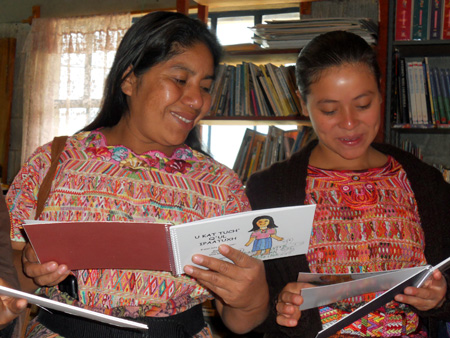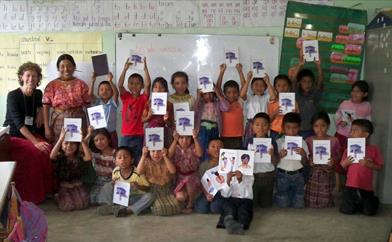by Clarissa Hardcastle
Join the International Reading Association’s celebration of International Literacy Day on Friday, September 7, 2012, from 10:00 a.m. to noon in the Library of Congress Jefferson Building in Washington, DC. Events will be held in Room 119.
“The impact of illiteracy on our society is sobering," says Marcie Craig Post, Executive Director of the International Reading Association (IRA). "Approximately 50% of the nation’s unemployed youth age 16 to 21 are functionally illiterate, with virtually no prospects of obtaining good jobs, 68% of individuals arrested are illiterate, and about three in five of America’s prison inmates are illiterate. The cost of illiteracy to business and the taxpayer is estimated to be $20 billion a year. On International Literacy Day, IRA renews its commitment to raising awareness and addressing the issues that will facilitate reading and increase literacy around the world.”
Events include IRA President Carrice Cummins, an expert panel on the Common Core State Standards, Center for the Book representatives, Benjamin Franklin, and other guests for a day focusing on worldwide literacy needs.
“There are currently more than 780 million illiterate adults and over 100 million children without regular access to education,” Cummins points out. “However, there are also more than four billion literate people in the world which is still reason to celebrate. International Literacy Day provides us with an opportunity to celebrate our successes while also reminding us of the need to continue sharing our stories and combining our efforts to meet the literacy needs of all people, nationally and internationally. Please join IRA on September 7th, and beyond, as we celebrate teachers making a difference worldwide.”
Also at the event, Rotary International, Pearson Foundation, and IRA will award $2,500 to two literacy projects: Reading Rocks in Rockford and Guatemala Bookmaking. Reading Rocks in Rockford is a festival with a book fair, musicians, and a “Storybook Character Sidewalk Parade” in Rockford, Michigan. Guatemala Bookmaking is a project from the Salem Oregon Rotary Club and the Oregon’s Vineyards Valley Reading Council that serves 130 preschool through sixth grade Mayan children, all of whom speak Cozal Ixil as their first language. An honorable mention goes to “Clothe the Body, Feed the Mind” in Ellensburg, Washington, where Morning Rotary partnered with CentralWORD, the IRA affiliate at Central Washington University, to provide clothing, books, and scholarships for orphans in Juba, South Sudan.
The United Nations Educational, Scientific, and Cultural Organization (UNESCO) founded International Literacy Day in 1967. Though International Literacy Day is traditionally observed annually on September 8, IRA will be celebrating a day earlier since this year that date falls on a Saturday.
IRA councils, affiliates, and individual members have observed International Literacy Day in the past with themed readings in libraries and local schools, supporting national and international literacy programs, and other independent projects.
IRA’s Engage Teacher to Teacher blog will feature Literacy Day-related content leading up to the event. Teacher and author L.P. Simone shares teaching tips about the need for titles featuring Latino/a children that are not "barrio" or migrant-worker specific on Tuesday, Mrs. Mimi pens her popular “QUIET: Teacher in Progress” column on Wednesday, author Monika Schroeder (Saraswati’s Way) discusses education in India in her “In Other Words” piece on Thursday, and we interview author Nancy Shaw about Elena’s Story (part of Sleeping Bear Press’ “Tales of the World” series) about a Guatemalan girl who is the first in her family to learn to read.
To attend the 2012 International Literacy Day celebration in Washington, DC, or to learn more about this annual event, visit /ILD.

Reading Rocks in Rockford included read-alouds by Local celebrity Maranda of WOTV 8.

Dr. Seuss book characters promote literacy at Reading Rocks in Rockford.

Mayan teachers in Oregon are proud of the books they wrote in the Cozal Ixil language.

Oregon students are excited to read their new Cozal Ixil books.
Clarissa Hardcastle is the strategic communications department intern at the International Reading Association.